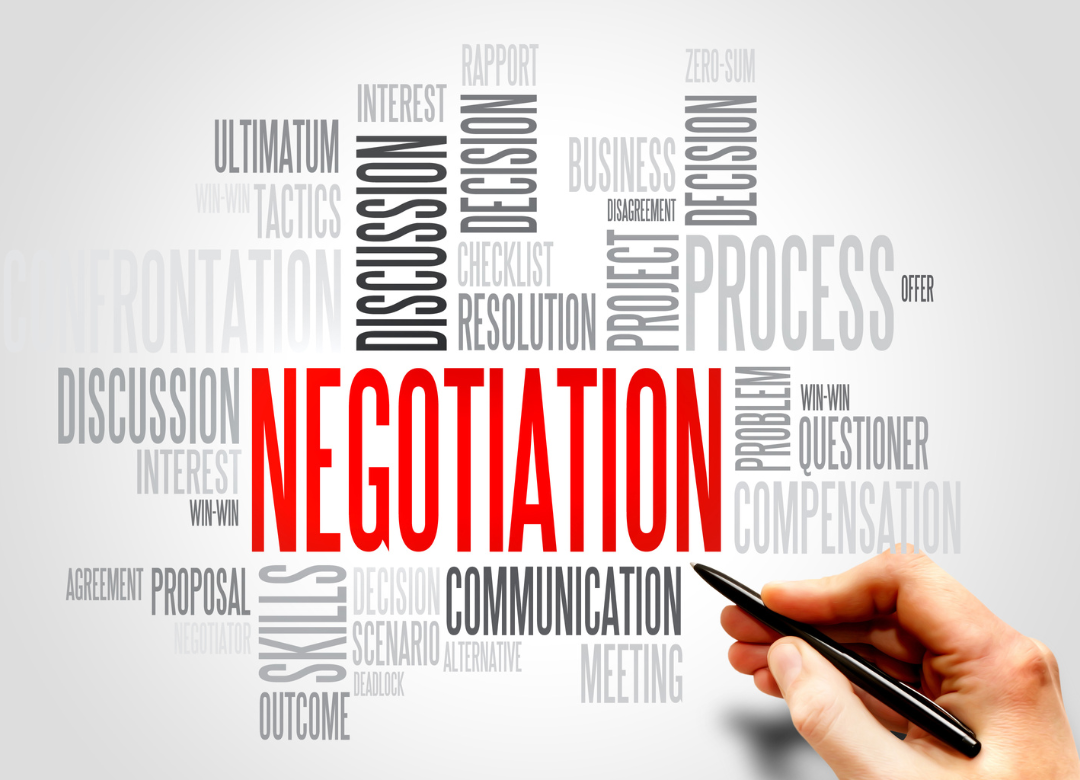Know Your Worth and Charge For It In Business
When running a business, one of the most important things you must understand is to know your worth. Knowing your worth means understanding what you bring to the table and how much value it is. This understanding isn't just an exercise in self-esteem; it's also essential to setting prices for your product or service. You need to charge more to make the profit necessary to sustain your business.
While it may seem smart to undercut your competitors' prices to bring in more customers, this can be counterproductive in the long run. Inexperienced business owners often fall into this "race to the bottom" mentality. Still, those who know their worth will realize that sacrificing a fair price for their services is unsustainable and not indicative of a successful long-term business strategy. Knowing where to draw the line between being competitive and undervaluing yourself is key to standing out among other businesses and demonstrating that your clients are getting quality services for their money.
It is all too common for those who know their worth to suffer from a fear of charging it. The root of this fear can be found in the current mindset, which favours short-term gains and values capital over long-term investments. Therefore, those who know their worth should not succumb to this mentality but instead embrace their value with confidence and leverage it to maximize their potential. It may take hard work, resilience, and undeniable knowledge of your value to break away from these significant mindset issues, but know that you can do so, and do not let the thought of charging your worth deter you.
A positive money mindset is critical to having a successful business. This means being conscious of the value you bring to the table and not allowing yourself to be devalued by external forces. Knowing your worth is an essential factor that will determine how successful you will be in business. When setting goals for your business, identify what success looks like for you and know the price you are willing to pay for its attainment. Remember that the best investment you can make is always in yourself, so never undervalue your products or services based on external influences - trust your know-how instead! A positive money mindset can take some time to cultivate, but having this foundation in place will be invaluable as you continue toward business success.
When considering your pricing policy, knowing and respecting your worth is essential. Undercharging for services does a disservice to both you and the customer, and it not only devalues your skills and expertise but also leaves no room for making a profit or fulfilling the needs of the task at hand. Consequently, this can attract people merely looking for a bargain without any consideration of value or quality - resulting in an unprofitable outcome and ultimately failing to meet expectations. Knowing your worth not only benefits you and potential customers but will also positively impact your business's bottom line.

If you are trying to know your worth and know what you should be charging for your products and services, you may want to do the following:
Do your research
The first step in valuing yourself and setting fair prices for your product or service is research. It would help if you found out what competitors are charging and what people are willing to pay for similar products or services. This information will help you set a reasonable rate that reflects the value of your offer and the market conditions that affect pricing. Remember, it's not just about finding out what other people are doing; it's also about understanding what makes your product or service different from theirs and how that difference can be used to justify higher prices.
Understand your value proposition
Another factor to consider when evaluating and pricing your services or products is the value proposition they offer customers. What do they get in return? How does investing money with you benefit them? Knowing this information will help you better understand how much money customers are willing to spend on your offerings and will thus help inform pricing decisions. Additionally, if any unique features of your product or service make them stand out from competitors, those should be highlighted to justify higher prices.
Be flexible
Finally, be aware that pricing isn't always static; it can change depending on various factors such as market demand, seasonality, economic conditions, customer needs, etc. Therefore, flexible pricing can be beneficial if done correctly; adjusting prices periodically can be a great way to stay competitive while still ensuring customers get their money's worth from working with you.
To effectively sell your worth, it is essential that you know and believe in it. If you do not know what you are worth and lack belief in your abilities, you will never be able to convince other people of its value. Self-confidence is critical when selling yourself; if you do not know and believe in your skill set, how can anyone else? Knowing your strengths and weaknesses is essential to understand what puts you ahead of the competition. Knowing your worth gives you an advantage in interviews or selling yourself for any opportunity. Utilizing this knowledge will enable employers and customers to understand why they should choose you above anyone else.
Understanding what skills, qualifications, and expertise you can offer a potential client or partner is the key to conveying the value you can bring. To truly sell yourself, know your worth and be confident when negotiating that deal or asking for a promotion. It takes a certain degree of self-assurance to know your offer is valuable and worthy of recognition. By doing this, you'll feel more empowered and willing to take risks that could propel your career further down the line. Believe in your worth and know that your efforts will pay off.

Knowing your worth is the first step to taking ownership of your success. It's easy to be intimidated and shy away from negotiating a salary, role or even limits for yourself in personal relationships. However, it's important to remember that if you know what you're worth and understand what your contribution will bring to the table, you'll have the confidence to negotiate with a sense of personal power and care for yourself. Establishing boundaries based on your values enables you to express yourself fully and demand respect from others, so when you know your worth, ensure you are prepared to take control of negotiations to best advocate for yourself.
Negotiating is a valuable skill for business owners to know. It helps them understand their worth, communicate confidently with clients and competitors, and maximize profits. Negotiation doesn't have to be harsh or adversarial — it is a tool one uses while doing business. Business owners should take the time to research negotiation techniques, practice practical communication skills, and understand the best ways to use them in various situations. Acquiring these skills can be the difference between getting a lucrative deal or coming away from negotiations disappointed.
Here are some tips when planning a negotiation:
1. Do your research
Before entering into any negotiation, it is essential to do your research. This means knowing what you want, what you are willing to compromise, and what the other party is likely to want. The more information you have, the more likely you will successfully negotiate a favourable outcome. Negotiations are an essential part of everyday life, personal or professional endeavours.
Before engaging in any negotiation, it is essential that a person knows their worth and understands what they are seeking from the conversation. Preparation for negotiations should include research on your wants and needs from the deal and that of the other party. Understanding the market price and standards can help you know where to focus your discussion, allowing for an advantage when addressing sticking points. Doing your research before entering a negotiation will provide clarity for yourself and demonstrate preparedness and respect to the other party involved in the conversation.
2. Set your limits
It is also essential to know your limits before entering into negotiations. Knowing your limits means knowing how much you are willing to give up to reach an agreement. If you enter into negotiations with clear boundaries, you may give away more than you are comfortable with.
Negotiations can be a tricky and intimidating process. Knowing your limits before negotiations will help ensure you can walk away with the best possible outcome for both parties. You must know your limits in advance to avoid making commitments or concessions that may not be in your long-term interests. Understanding what is acceptable and non-negotiable offers clarity, which is essential during negotiations. Remember, the most successful negotiations have both parties feeling satisfied and respected.
3. Be prepared to compromise
While it is essential to know your limits, it is also important to be prepared to compromise. In most negotiations, both parties must give up something to reach an agreement. If you are not willing to compromise, then it is unlikely that you will be able to reach a successful outcome. Negotiations are an important part of many business dealings, and being well-prepared is essential to a successful outcome.
Compromising and reaching a mutually beneficial agreement is key in any negotiation situation. While it can be challenging to know what position to take when presented with conflicting ideas, it's essential to demonstrate an understanding that both parties need to come together for a resolution. Keeping the dialogue open and exploring various options can allow each side to find common ground, making room for compromise that all parties involved can agree on. Knowing when and how much to concede will help create an effective outcome and a successful negotiation designed for both parties' benefit.

4. Be assertive, not aggressive
Being assertive during a negotiation is essential, which means being firm in your convictions while respecting the other party's position. On the other hand, being aggressive will only mean alienating the other party and making them less likely to agree to your terms.
If you find yourself getting angry or emotional during a negotiation, take a step back and try to reframe the situation in a more positive light. Negotiations can be an effective and attractive solution for many circumstances, but it is essential to approach them with confidence and care. Advocating assertively rather than aggressively should be your key goal to negotiate effectively. This will create a respectful atmosphere where both sides can productively explore any potential opportunities. Being overly aggressive does nothing to move negotiations forward and may often lead to strained relationships further down the road. Remember that negotiations are meant to build solid connections and mutual understanding, so take the time to be assertive instead of aggressive when participating in these conversations.
5. Be flexible
While it is essential to be assertive, it is also important to be flexible. Flexibility means being willing to change your position to reach an agreement. If you are not flexible, it is unlikely that you will find common ground with the other party, and a successful outcome may not be possible. Being assertive can be the key to success in negotiations; however, flexibility is just as important. Negotiators must remain confident and decisive while demonstrating an ability to accommodate other perspectives into their own. This requires a balance between being firm and staying open-minded. Through assertiveness and flexible thinking, negotiators will be better able to reach an amicable agreement that satisfactorily meets both parties' interests. Understanding another person's perspective will be essential to breaking through challenging moments in any negotiation. Negotiators must negotiate with clear strategies but guided by a spirit of cooperation to achieve positive results for everyone involved.
6. Listen carefully
It is also essential to listen carefully when negotiating. This means paying attention to what the other party is saying and trying to understand their point of view. If you do not listen carefully, then it is likely that miscommunication will occur, and this could lead to a breakdown in the negotiation process. When negotiating, it is vital to remain focused and to listen carefully. Not listening attentively can lead to miscommunication and missed opportunities during the negotiation process. Dialogue and discussion should remain professional even when discussing complex topics. Asking clarifying questions throughout the negotiations is a great way to ensure both parties understand each other's perspective before deciding on the details of an agreement. This encourages further collaboration and makes resolving much faster and smoother. In conclusion, actively listening during negotiations helps create an environment open to dialogue that allows both parties to reach a satisfactory outcome.
7. Stay calm
It is important to stay calm when negotiating. Staying calm means keeping your emotions in check and remaining professional. If you allow your feelings to get the better of you, then it is likely that the negotiation will break down, and a successful outcome will not be possible. Negotiating can be an intimidating process which can cause negative emotions to arise, and both parties may become confrontational. However, staying calm is essential when participating in a negotiation as it encourages respectful dialogue between the two parties and allows them to collaborate positively to reach mutually beneficial solutions. Although disagreements might occur, it is essential to remain collected and use professional language throughout the discussion. If things get heated, take a step back and refocus on everyone's best interests. Demonstrating this level of maturity during negotiations allows all parties involved to feel respected despite any disagreements that may arise.

8. Know when to walk away
Sometimes, no matter how hard you try, there is just no reaching an agreement with the other party. In these cases, knowing when to walk away from the negotiation is essential. This doesn't mean giving up on your desired outcome; instead, recognizing when further discussion is unlikely to lead to any progress. Knowing when to end a negotiation is one of the most important things a businessperson can do. Walking away from the negotiation table at the right time maximizes the chances of achieving a better result, whether in purchase negotiations, legal settlements, or other types of bargaining. It also provides leverage when one re-engages in the talks later if needed. To determine when it is best to walk away from a negotiation, one must assess their own goals and compare them to what is currently being offered—if what is offered does not come close to reaching those goals, then continuing may be unproductive. Therefore, it can often be wise to take some time away from the table so that each party can objectively assess their next steps without hard commitments.
The bottom line is that understanding your worth—and subsequently charging accordingly—is essential to running a successful business today. Researching competitor pricing models and understanding your value proposition helps ensure that customers receive their desired return on investment while allowing companies like yours to remain profitable over time. Finally, flexible pricing can help keep things competitive while maximizing profits overall! With these tips in mind, you'll have no trouble valuing yourself appropriately and charging accordingly!
Are you ready to charge what you’re worth and build a profitable business? Do you need help transforming your money mindset into a cash-making machine? Register for the Cash Confident Mindset course today!


